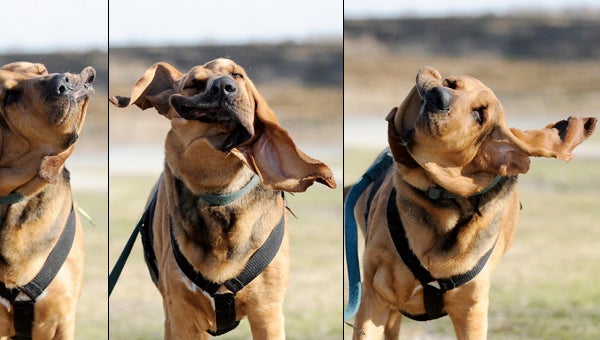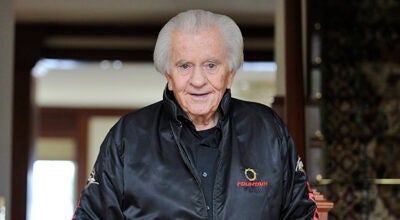Search and rescued: Training exercise draws teams from six states
Published 8:03 pm Saturday, February 22, 2014

PILOT BRIEFING: North Carolina State Highway Patrol helicopter pilot Martin Horne Jr. teaches search and rescue volunteers about how he and his copilot go about doing searches from the air. Later, Horne would instruct volunteers from the air as to the location of a victim on the ground below.
Teams lined a dirt road waiting to start the search. The mission: to pinpoint the location of one male, two females, on 16,000-plus acres of woods and swamp. They searched through the night Friday and continued through the day Saturday, because not finding the targets isn’t an option.
It’s as close to real life as these search and rescue operators can get. North Carolina Canine Emergency Response Team (NC C.E.R.T.), in conjunction with Beaufort County Emergency Management, have held the annual Eastern Search Exercise for 14 years running, drawing search and rescue volunteers from up and down the eastern seaboard. There are K-9 teams (those with dogs that track and/or can detect remains) and equine teams (horse and riders searching for a target); there are five-man teams tracking targets through miles of boggy land using instructions issued from a North Carolina State Highway Patrol helicopter in the air.

JOAN OF BARK: Joan of Bark, or Joanie, as she’s more commonly known, takes a moment to relieve some tension at the Eastern Search Exercise Saturday. The weekend-long operation gives volunteers, like Joanie’s owner Louis Board, a chance to hone their search and rescue skills.
From North Carolina, South Carolina, Georgia, Maryland and Pennsylvania, these teams are volunteers honing their work.
“This is where they get the experience,” said NC C.E.R.T. director Mac Morgan.
Morgan described Saturday’s operation: a helicopter has found a victim who now needs to be located by ground. Search and rescue teams are sent in to find the victim, guided by above. It’s practical experience — the kind these folks rarely get outside from real rescue operations.
“It provides us the opportunity to train in more of a real-world situation,” said Louis Board, a member of Chatham Emergency Management Agency, out of Savannah, Ga. “It’s an opportunity to see other teams work and learn by watching what they do. … We can learn better ways to do things by working with each other.”
Board came to the SARX with his bloodhound Joanie, who, at age 3, is still in training.
“This is realistic for a search of its type,” said Gordon Deno, SARX incident commander and Wilson County Emergency Management coordinator.
Deno stressed the importance of having events like the Eastern Search Exercise: that search and rescue operations are primarily staffed with volunteers, only the U.S. Coast Guard and Colorado have paid search and rescue volunteers. Giving volunteers a chance to practice their skills is to the benefit of both the volunteers and the people they serve.
“It’s a specialized field, just like a firefighter, police officer or paramedic,” Deno said, adding that it takes training to learn how to search thoroughly, and safely, as searchers could come across dangerous wildlife and terrain on any given operation. “There’s a phrase on the whiteboard at the (Old Ford) fire department: ‘Training will get you hurt, lack of training will get you killed.’”





